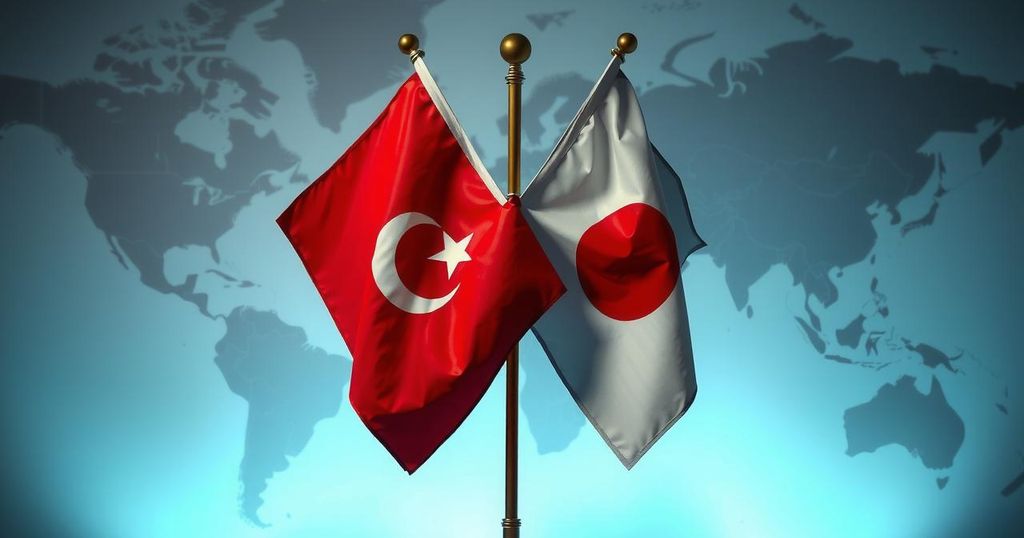Russia and Iran Forge Alliance: Implications for Western Nations

Russia is set to sign a strategic partnership pact with Iran, potentially deepening their military and political alliance amid growing concerns in the West. The agreement reflects Russia’s ongoing adjustments to its foreign policy related to the conflict in Ukraine and aims to enhance cooperation in defense upon the backdrop of accusations regarding military support from Iran. This development highlights shifts in global power dynamics, with implications for U.S.-led structures being brought into question.
On January 19, 2025, Russia and Iran are expected to formalize a strategic partnership agreement, reinforcing their alliance in the context of shifting global dynamics. This pact emerges shortly before the inauguration of Donald Trump, and underscores a relationship that has intensified following Russia’s aggressive actions in Ukraine. The potential ramifications for Western nations could be significant, warranting close scrutiny of this development.
Russian Foreign Minister Sergei Lavrov has remarked that the agreement is not intended against any specific country, referencing a similar pact concluded with North Korea last year. However, that previous treaty included a mutual defense clause, heightening concerns among nations such as the United States, Ukraine, and South Korea, as it has been associated with military cooperation that directly impacts global security.
In light of evidence, such as the capture of North Korean soldiers by Ukraine, apprehensions about Russia’s military alliances are valid. The potential strategic cooperation between Russia and Iran regarding military support seems poised to evoke similar fears in the West. Analysts underscore that Russia’s war in Ukraine heavily influences its foreign policy, leading to evaluations of international partnerships through the lens of defense and support in ongoing conflicts.
International accusations suggest that Iran has supplied Russia with arms, particularly drones and missiles for use in Ukraine, although both nations contest these claims. The anticipated agreement is expected to enhance defense collaborations, indicating a deeper military-industrial partnership. Experts forecast that while the public aspects of the deal might appear benign, substantial behind-the-scenes exchanges of military technologies and expertise are likely to transpire.
The timing of this partnership signing has been deemed coincidental by Russian officials, who dismiss the notion of it being timed with political events in the United States. Nonetheless, the perception that Russia is strengthening its ties with Iran is a strategic move to counter Western narratives concerning Russia’s global standing. This pact illustrates Putin’s vision of a multipolar world, intending to assert that Western influence is waning despite ongoing pressures to isolate Russia economically and politically.
The collaboration between Russia and Iran symbolizes their intent to forge solidarity amidst international sanctions, potentially signaling a paradigm shift in global alliances as both nations attempt to navigate geopolitical challenges together. The implications of this evolving relationship will likely continue to be a focal point of concern for Western policymakers.
The anticipated partnership between Russia and Iran arises against the backdrop of significant geopolitical changes following Russia’s military actions in Ukraine. With both nations considered adversaries of the West, they are looking to strengthen their ties in defiance of US-led sanctions. The agreement may echo previous military collaborations in which defense and technology exchanges shape strategic interactions that could destabilize the existing global order. The surrounding context underscores the urgent need for the West to assess the implications of this emerging alliance and its potential impact on the geopolitical landscape.
In summary, the forthcoming strategic partnership between Russia and Iran raises critical concerns for Western nations, particularly surrounding military cooperation and geopolitical stability. The history of Russia’s alliances, especially with North Korea, serves as a cautionary tale of the potential implications of foreign partnerships during times of conflict. As these two nations bolster their ties, it signifies a shift towards increased collaboration that the West must monitor closely, lest it become further challenged in the international arena.
Original Source: news.sky.com








